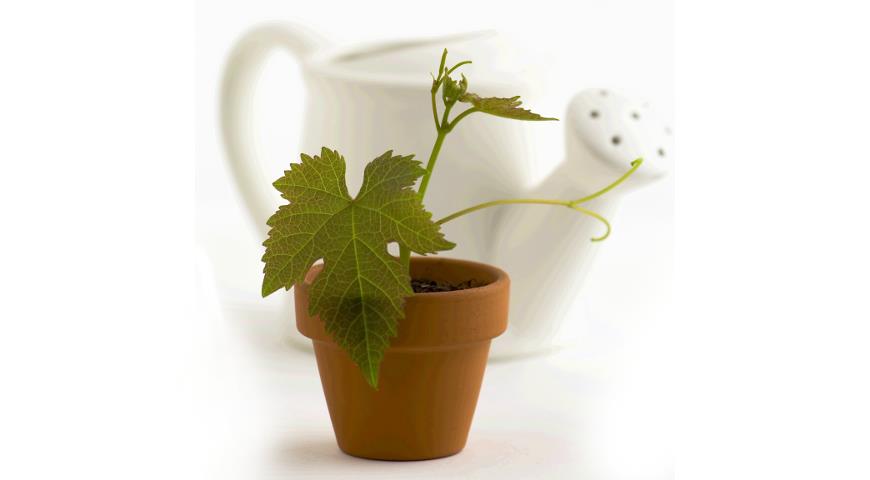Traditionally it is believed that the reproduction of grapes is possible only by saplings or layering. There is another, albeit long, but interesting way. How to grow grapes from pits at home, as a result of having an ornamental plant and get a decent harvest.
Table of contents
Is it possible to grow grapes from seed at home
Although numerous studies confirm that the method of propagation of grapes with stones is not always justified.This is due to the fact that the seedling rarely preserves the varietal properties of the parent plant. But this method is sometimes used
Goals of growing grapes from pits
- Selection work (breeding hybrids, the formation of varieties with the best taste, resistant to frost, disease).
- Cultivation of seedlings.
- Decorative use of seedlings.
- Growing stock.
Not all grape varieties are suitable for seed propagation; early hybrid varieties are often used:
And the fruitful qualities of the self-fertile varieties: Early dawn, Alpha, Russian purple are inferior to the mother bushes.The choice depends on the purpose of using the berries: sour - for winemaking, sweet is eaten without processing.
- Cluster of grapes Russian concord
- Grapes delight, suitable for cultivation from seed
- Grape variety marshmallows
- Kesha-1, grown from seed
- Laura variety
- Blue grapes triumph
Specific features are not always preserved. Therefore, you can sow several seeds of the same variety at once.In the future, compare taste, yield, resistance to pests and frost.
Seed preparation for planting
For successful seedlings select large, ripe berries, free of defects and diseases. Leave until full maturity.
Stages of seed preparation
- Remove the pulp, wash the seeds under running water or soak for 2 hours.
- Select large, beige or brown tones.
- To increase the germination of the process of stratification, starting no later than December for several months. Then at the beginning of summer the seedling can be transplanted into the open ground.
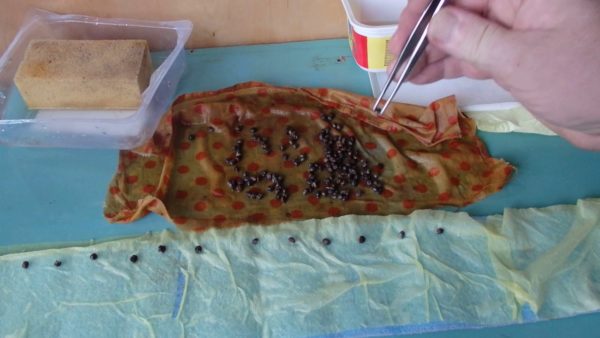
Stratification
Selected seeds are placed in a damp cloth and plastic bag and stored in the refrigerator for 6-8 weeks. The optimum temperature is + 3⁰С - 0⁰ С. It is required to inspect the seeds regularly, once in 10 days.
At the final stage, the seeds are placed on a damp napkin, without covering, in a warm place. After about three days, thin roots will begin to appear. It is time to plant in the ground.
Some gardeners do not always apply a stratification process. To do this, the crops are made in the winter, in open ground, with the germination rate below.
It is not necessary to use for planting the bones from the unripe berries. They have low germination, or grow weak shoots with low yields.
Sowing at home in the pot
Sowing stages
- Prepare the soil. For these purposes, use the store or mixed independently in equal proportions of sand, humus and garden soil.
- It is advisable to use a separate container for each seedling. Preliminarily, a drainage hole is made in each and several stones are poured to the bottom. Fill with earthy mixture.
- Seed must be planted to a depth of 1-1.5 cm in a pot and shed.
- The ideal place for further growth will be well-lit windows, preferably oriented to the south. It remains only to germinate landing.
- To preserve soil moisture before germination, the cups are covered with a film.
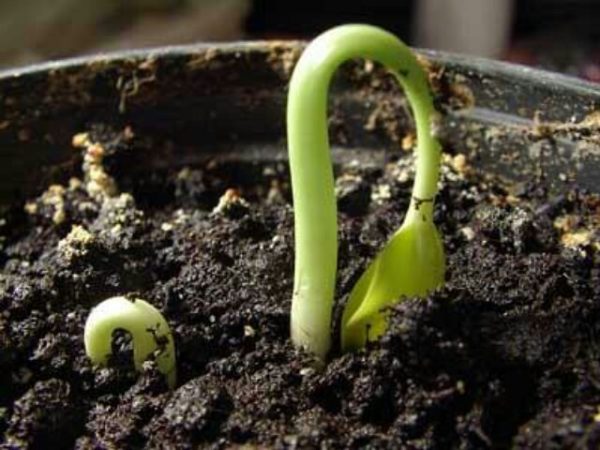
Plant care
An important factor for the growth of a strong plant is periodic, moderate watering and the presence of sunlight at least 8 hours a day. In addition, the main care is loosening and feeding. Nitrogen or phosphate fertilizer is applied every 10 days.
At the initial stage, it is better to water the young shoots from the sprayer in order not to disturb the root system.. Sapling daily inspect the absence of spider mites. The pest is able to destroy the plant.
If the plans of the grapes will be used for decorating the room, then at a height of 10 cm the seedling is transplanted into a container with a volume of 3-4 liters.
Planting in open ground is performed in the first days of June.
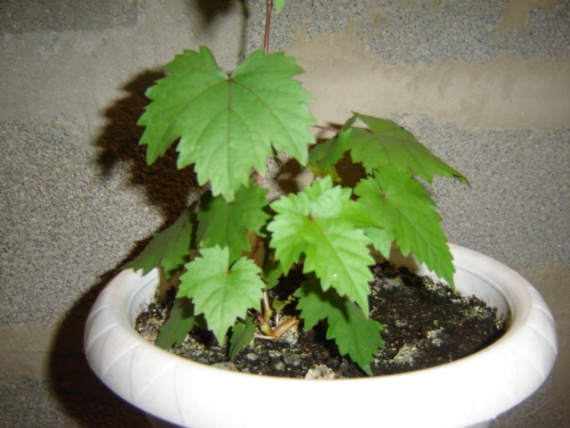
Transplantation in open ground and vine care
When the seedlings reach a height of 20-30 cm, they are transplanted into the garden.
- Place for landing choose a sunny, windless, preferably hidden from the north winds.
- Soils should be light, breathable, well drained. In wet lowlands grapes freezes.
- A mixture of humus, sand and soil is poured into excavated holes at a distance of 1.5-2 meters from each other.
- Grape seedlings are planted in a moist soil on a warm, sunny day.
- Each shoot is fixed to a vertical support (more often it is a trellis with a height of 2 meters with a tensioned wire).
During the first summer, care consists of regular watering, loosening and weeding from weeds. Under favorable conditions, the grapes will take root well and reach a height of 1-2 meters in the first year.
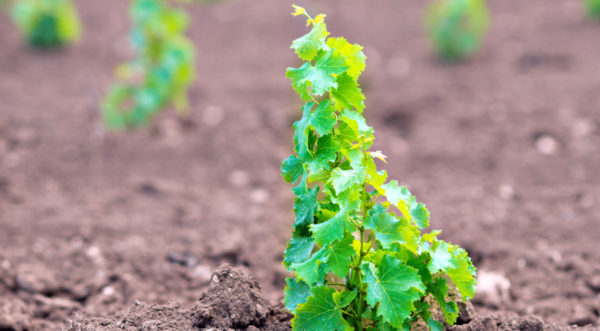
Formative pruning vines are recommended for the third year of growth. With the right choice of plant variety, the crop is expected in 3-4 years, in rare cases in 2.
Growing grapes from the stone at home is a more laborious process. This is due to a long period of growth before the first harvests.And it does not always bring the expected effect. Therefore, in case of failure, and varietal qualities will not be preserved, the sapling is used as a stock.
